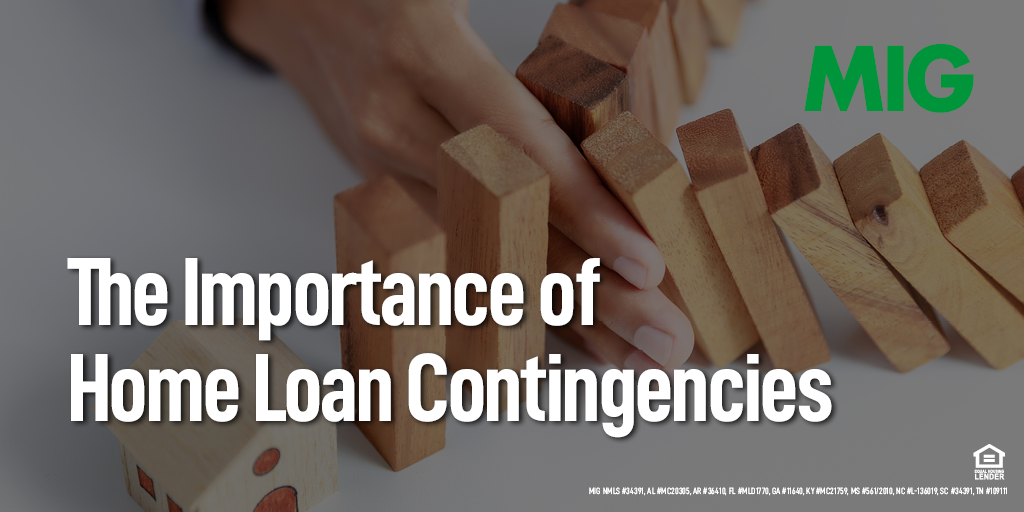
The Importance of Home Loan Contingencies
Negotiating for the home you want to buy can be stressful. That’s why it’s important to understand every facet of the process. One of the key points you will need to know about are home loan contingencies. Let’s talk about what we mean by that term, the most common types of contingencies, and the pros and cons contingencies pose to the buyers and sellers of the property.
What Is a Home Loan Contingency?
During the negotiation process, buyers may ask for a condition to be met before they are willing to move forward with the purchase. This is a contingency. They are common aspects of homebuying and selling. Sellers may agree to meet the contingency, they may counter-offer, or they may refuse the contingency altogether.
Types of Contingencies
There are several contingencies that may occur during the homebuying negotiation. Some of the most common ones:
- Inspection contingency: The seller will buy the home if the inspection is acceptable.
- Home selling contingency: The deal hinges on the buyer’s ability to sell their current home. (Use our mortgage calculator to see how much home you can afford).
- Appraisal contingency: The home must appraise at a certain amount for the buyer to get the mortgage loan.
- Financing contingency: The deal rests on the buyer being able to secure financing to cover the home price.
Pros and Cons of Contingencies for the Buyer and Seller
For the buyer, the advantage of a contingency is that it protects them. Getting items repaired that show up during the home inspection or giving them breathing room to sell their home before they are on the hook for a mortgage payment on the new home can work out well.
However, contingencies, especially if it’s a seller’s market, can be risky to the deal. An offer that has contingencies may not be as attractive to the seller as an offer containing no contingencies. After all, why would someone wanting to sell a home agree to items that may derail the deal if they don’t have to? For sellers, there’s a risk of accepting an offer with contingencies, because, if the condition isn’t met, the deal falls through.
The bottom line for buyers is to be able to understand what contingencies are and how they work for you. If you must absolutely add one to financially be able to buy the home, or to give yourself peace of mind, then do it. Be aware, though, that contingencies may decrease your chances of winning the bid if the seller receives other offers that contain no contingencies.
Do you have additional questions about specific contingencies, or just want to talk about the homebuying process in general? Contact us today and one of our experienced loan officers will be happy to consult with you.



